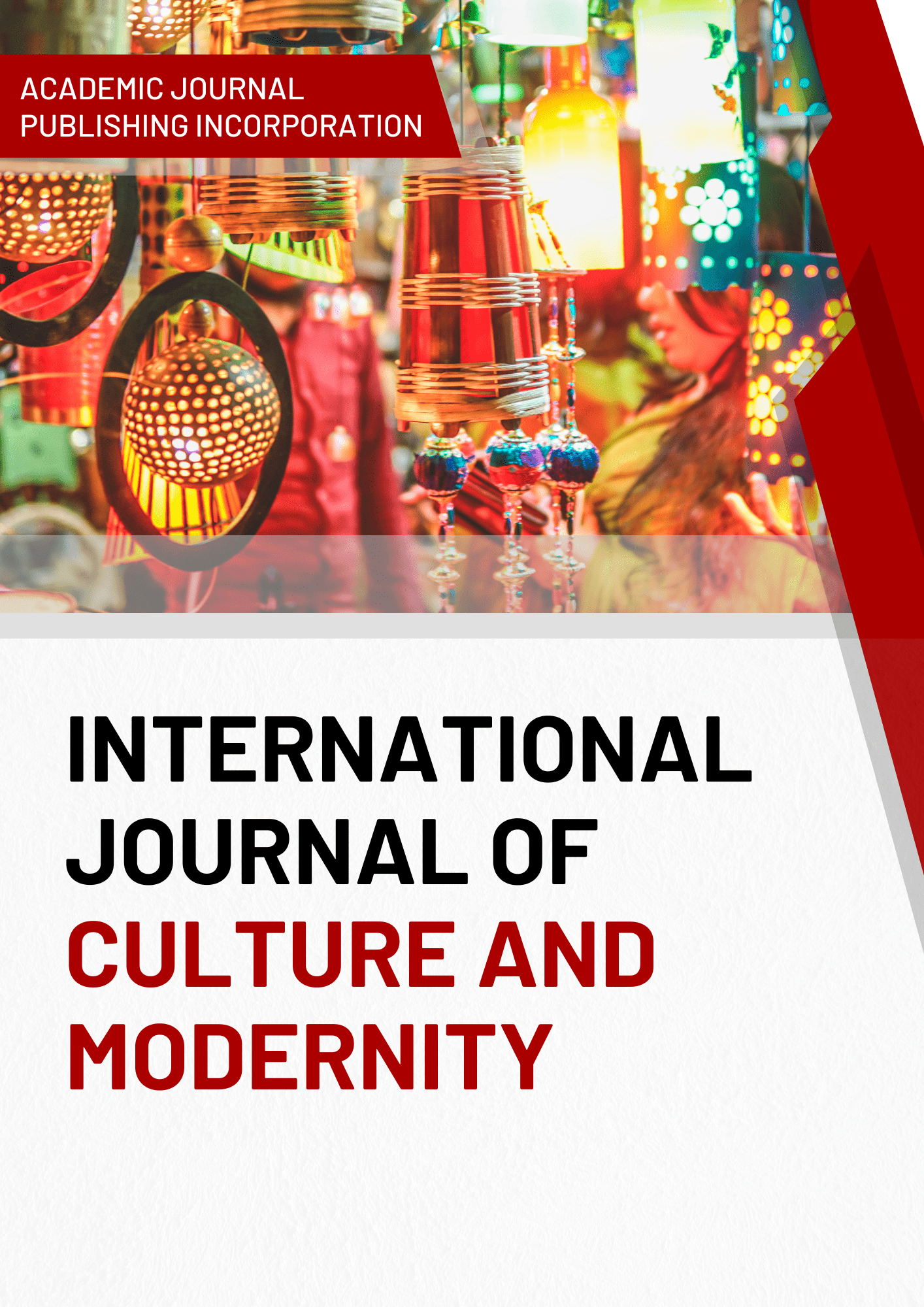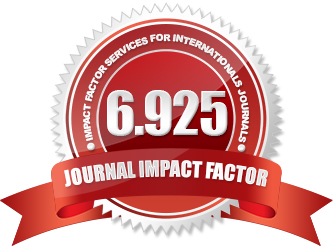Corruption and Ethical Issues in Law Enforcement in Nigeria: A Theoretical Experience
DOI:
https://doi.org/10.51699/ijcm.v7i.55Keywords:
Corruption, Ethical Issues, Law Enforcement, Theoretical PerspectiveAbstract
Nigerian development problem is partly linked to corruption, which begets malnutrition, illiteracy, poverty, unemployment, ethnicity, banditry, hunger and infrastructural decay. It is a social problem that bedevils proper law enforcement in Nigeria. Due to the alleged and proven numerous corrupt practices across the country from 2015-2020, this paper provides an overview of ethical issues in law enforcement in Nigeria. It ascertain the relationship between corruption, ethical issues, and law enforcement in Nigeria, and the effectiveness of anti-corruption crusade in Nigeria. Three (3) theories were used in explaining the study namely: Social Learning Theory (SLT), Social Disorganization Theory (SDT) and Corruption Permissiveness Theory (CPT), but we adopted the latter. The study adopted a qualitative design. The major sources of data collection were secondary sources which include, journal publications, textbooks, government publications and newspapers. The secondary data collected were thoroughly subjected to content analysis.
References
Agi, S. P. I. (2003). An Approach to the Study of Organization of Government. Pigasiann and Corace Publishers.
Ahmed, K. A., Saudat, A., & Rasaq, M. A. (2019). Social Media Anti-Corruption Campaigns and Nigeria Development: An Appraisal of Media Roles. https://doi.org.10.1080/09720073.2019.11890876.
Akali, M. N. (1999). Nigeria in the Transition Year 1993-1999. National Institute Press.
Akindele, S. T. (2005). A Critical Analysis of Corruption and its Problems in Nigeria. www.researchgate.net/
Akers, R. L., & Sellers, C. S. (2009). Criminology Theories (5th ed.). Oxford University Press.
Akpotor, S. (1982). Corruption: The Civil Society and Government Philosophy and Politics. Joga Press.
Alatas, S. H. (1990). Corruption: Its Nature, Causes and Functions. Aldershot Press.
Aristotle, I. J. (2008). Corruption and Ethical Issues in Law Enforcement: A Challenge to Legal Policies Implementation in Nigeria. Unpublished APPA Journal Article Unical.
Aristotle, I. J. (2008b). Corruption, Political Party System and Nigerian Democracy. Bassey Andah Journal of Cultural Studies, 1(2), 133-139.
Aristotle, I. J. (2012). Corruption and the Consolidation of Nigeria’s Democracy: Trends, Problems and Prospect. Kadmon Printing Press.
Aristotle, I. J. (2015). Local Government Administration in Nigeria: From Grace to Grass. (3rd ed.). Kadmon Printing Company Ltd.
Babarinsa, D. (2003). House of War. Spectrum Books Ltd.
Bernard, T. J, Snipes, J. B., & Gerould, A. L. (2010). Vold’s theoretical Criminology (6th ed.). Oxford University Press.
Brown, G. M. (2013). Nigerian Political System: An Analysis. International Journal of Humanities and Social Science, 3(10), 172-178. www.ijhssnet.com.
Bussell, J., & Ackerman, S. R. (2015). Typologies of Corruption: A Pragmatic Approach. Transaction Publishers.
Chappell, A. T., & Piquero, A.T. (2004). Applying Social Learning theory to Police Misconduct. Deviant Behaviour. Oxford University Press.
Curtis, M. (1978). Comparative Government and Politics. Harper and Row Publishers.
Dhikru, A. Y. (2011). Nigeria’s fourth Republic and the Challenges of a faltering Democratization. African Studies Quarterly, 12(3), 1-15.
Dreher, A., Kotsogiannis, C., & McCorriston, S. (2007). Corruption around the World: Evidence from a Structural Model. Journal of Comparative Economics, 35(2), 443-466.
EFCC. (2010). 7 Anti-Corruption Laws. Government Press.
Ejizu, C. I. (2008). Between Religion and Morality: Their Interconnection and Significance in Public Life (An Inaugural Lecture). University of Port Harcourt Press.
Ezeh, C. (2012, December 16). Graft Allegations of 2012. Sunday Sun Newspaper, pp. 62-64.
Folola, T. (2001). Culture and Customs of Nigeria. Greenwood Press.
Free English Language Dictionary. http://www.audioenglish.net/dictionary.
Fwatshak, U. S. (2009). Economic and Political Environment of Elections and Expectations of Nigerian from Elections. Journal of the Historical Society of Nigeria, 18(1), 1-12.
Harriman, T. (2006). “Is there a future for Democracy in Nigeria?”. Public Lecture at the Department of International Development. Oxford University. (5th June, 2006).
Hofstede, G. O. (2001). Culture Consequences: Comparing Values, Behaviour, Institutions and Organization Across nations. (2nd Edition). Sage Publishers.
Igwe, S. C. (2010). How Africa Underdeveloped Africa. Professional Printers and Publishers.
Inglehart, R. F., & Welzel, C. (2005). Modernization, Cultural Change, and Democracy: The human Development Sequences. Cambridge University Press.
Jason, P. (1999). The Military National Cohesion and Security. In M. H. Kukah, Nigeria: Towards a Just and Democratic Society. Sovereign Ventures Press.
Jinadu, L. A. (2011). Inter-party Dialogue in Nigeria: Examining the Past Present Parties Dialogue Series. “A Conference on electoral process” Abuja. October 4, 2011.
Lavena, C. (2013). What Determines Permissiveness Toward Corruption? A study of Attitudes in Latin America. Public Integrity, Fall 2013., 15(4), 345-365.
Melgar, N., & Rossi, M. (2009). Permissiveness Toward illegal. Actions in Uruguay Are Belief in God, Income and Education Relevant? Vol. (10). Department of Economics, Universidad de la Republica.
Meng, Q., & Friday P. C. (2010). Corruption in transitional China: A theoretical Conceptualization. In V. Konarska, and J. Lac-howski (Eds). Major problems of Contemporary Criminal law, Criminology and Victimology. Wolterskluwer Publishing Office.
Muhammadu, B. (2015). If we do not kill corruption, corruption will kill Nigerians. The Nations Newspaper, March 13.
Njoku, F. O. (2011). Corruption: The Bane of Nigeria's Development. In E. C. Anowai, Pope John Paul II Annual Memorial Lecture Series. Demercury Bright Printing.
Obodo, N. (2016). Challenges of Policy Implementation in Nigeria: A Case of Monetization Policy. International Journal of Social Sciences and Management Research, 2 (1), 22-28.
Odey, J. (2005). Democracy and the Ripples of Executive Rascality. Snaap Press.
Ogbozo, C. (2011). Nigeria's Corruption Syndrome and the Long Journey to Liberation. In E. C. Anowai, Pope John Paul II Memorial Lecture Series. Demercury Bright Printing.
Okoyen, E. (2019). Election Security and Sustainable Democratic practice in Nigeria: The Role of the Department of state Services (DSS) in Bayelsa 2019 General Elections. Ignatius Ajuru University of Education, Post Graduate School. (Unpublished M.SC Thesis).
Olakunle, O., & Modupe, A. (2015). An Overview of 2015 General Elections in Nigeria. Arabian Journal of Business and management Review, 5(5), 13-20.
Olusola, O. K. (2016) Corruption in Nigeria: Theoretical Explanation. Issues in Social Science Journal, 4(1), 57-64.
Onyiloha, C. A. (2013). "An Ethical Analysis and Application of Benedict XVI's Caritas in Veritate to Business Practice in Nigerian Society". Areopagus: Journal of Church & State Relations, 3(3), 1-18.
Onyiloha, C. A. (2014). An Ethical Appraisal of John Paul II's Culture of Death and Culture of Life: Implications for Nigerian Society. Port Harcourt: University of Port Harcourt. Unpublished Doctoral Dissertation.
Onyiloha, C. A. (2014). Corruption in Nigeria: An Ethical Appraisal. Nimo: Rex Charles and Patrick Publications.
Rivas, M. F. (2006). An Experiment on Corruption and Gender Document No.08/06. Universidad de la Republica.
Sandholtz, W., & Taagepera, R. (2005). Corruption, Culture, and Communism. International Review of Sociology, 15(15), 109-131
Seligson, M. A. (2002). The Impact of Corruption on Regime Legitimacy: A Corruptive study of four Latin American Countries. Journal of Politics, 64(2), 408-433.
Singer, S. D., & Hensley, C. (2004). Applying Social learning theory to childhood and adolescent fire-setting: can it lead to serial murder? International Journal of Offender Therapy and Comparative Criminology, 3(1), 48,461.
Steenbeek, W., & Hipp, J. R. (2011). A longitudinal test of Social disorganization theory: feedback effects among Cohesion, Social Control and disorder. International Journal of Criminology, 49(3), 833-871.
Swamy, A., Knack, S., Lee, Y., & Azfor, O. (2001). Gender and Corruption. Journal of Development Economics, 64(1), 25-55.
Tittle, C. R. (2004). Social learning theory and the explanation of crime: A guide for new century. Contemporary Sociology: A Journal of Review, 33(6), 7-16.
Travits, M. (2010). Why do people engage in Corruption? The case of Estonia. Social Forces, 88(3), 1257-1279.
Uduigwomen, A. F. (2006). Introduction to Ethics: Trends, problems and perspectives. Jochrisem Published.
Uduigwomen, A. F., & Ozumba, G.O. (1997). Leadership and Nigeria’s Socio-ethical malaise: Nigeria Government and Politics. AAU industries.
Ugwu, U. (2008). Nigeria, Elites Class and Political Culture: The challenges of value degeneration and sustainable Democracy. Unpublished APPA Journal Article.
Umechukwu, P. O. (2011). The Mass Media, Corruption and National Development. In E. C. Anowai, Pope John Paul II Annual Memorial Lecture Series. Demercury Bright Printing & Publishing.
Uya, E.O. (200). Civil Society and the Consolidation of Democracy in Nigeria. Clear Lines Publishers.
Van de Walle, S. (2008). Perceptions of Corruption as Distrust? Cause and Effects in Attitudes towards Government. In Ethics, Integrity and the Politics Governance (eds.) L.W. Huberts, M. Jeron, & C.L. Hjurkiewicz. Cheltenham. Edward Elgar Publishers.
You, S., & Khagram, S. (2005). A Comparative Study of inequality and Corruption. American Sociological Review, 70(1), 136-157.
Young, C. (1993). The Politics of Cultural Pluralism. University Press.
Zhang, Y., Cao, L., & Vanghn, M. (2009). Social Support and corruption: structural determinants of Corruption in the world. Australian and New Zealand Journal of Criminology, 42(2), 204-207.
Downloads
Published
How to Cite
Issue
Section
License
Copyright (c) 2021 Aristotle Isaac Jacobs

This work is licensed under a Creative Commons Attribution 4.0 International License.






